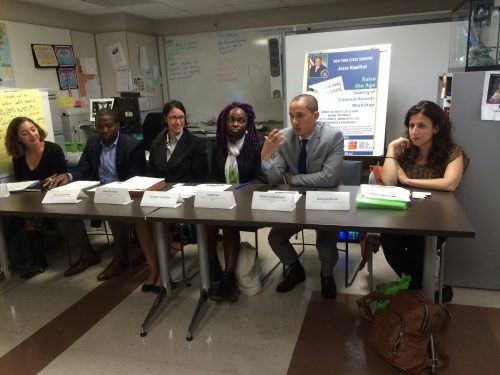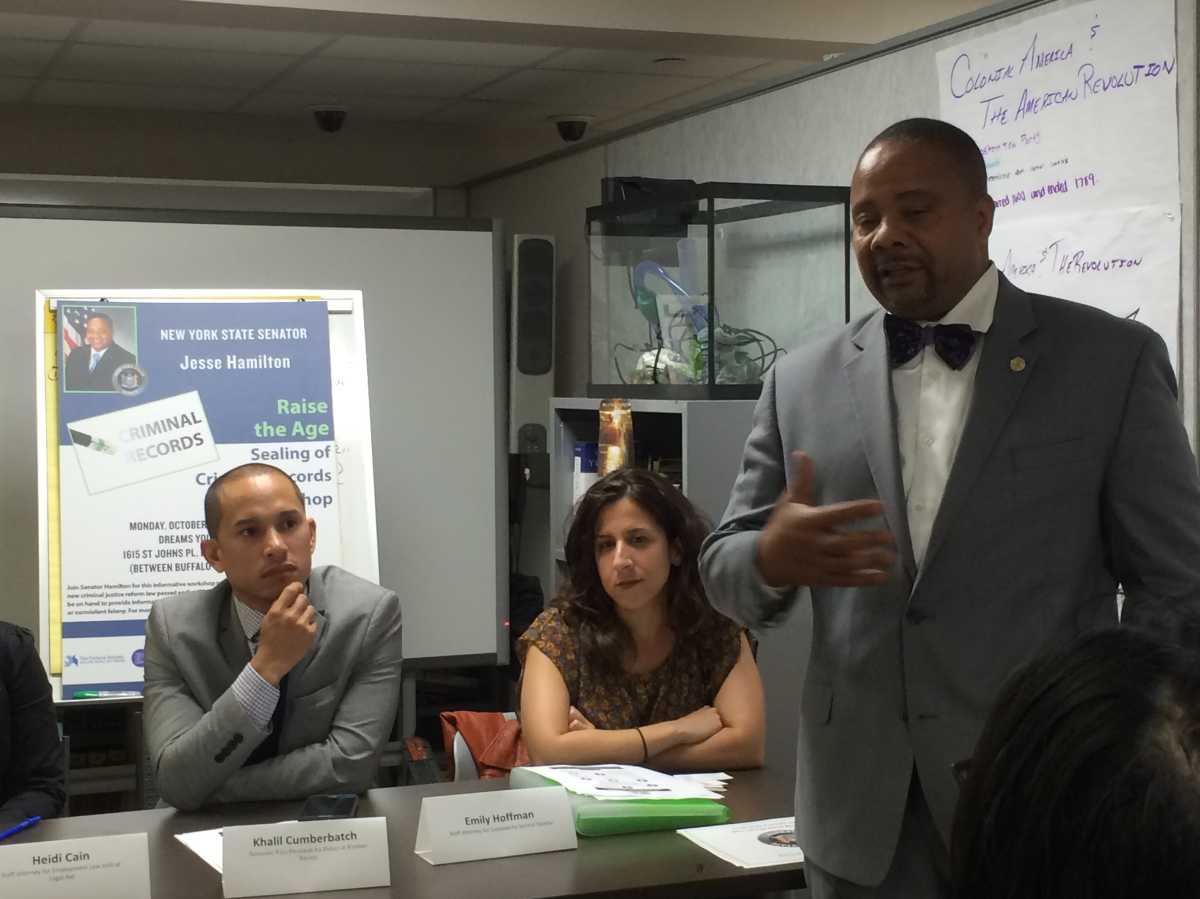A new law looking to protect individuals from unfair employment practices is giving past criminal offenders an opportunity at a fresh slate in the workforce.

State Senator Jesse Hamilton (D-Central Brooklyn), alongside criminal justice reform groups, city agency officials, and legal aid providers hosted a criminal sealing workshop last night in Crown Heights to help local residents take advantage of the newly passed legislation.
On Oct. 7, the New York State’s new criminal records sealing law (CPL. 160.59) went into effect, as part of the broader Raise the Age legislation pushed by the Independent Democratic Conference (IDC). The new law allows certain criminal records to be sealed in an effort to remove the stigma of a criminal conviction and to help individuals when applying for school and filling out job applications.
According to the new measure, individuals who have been convicted of up to two crimes, may be eligible to have their convictions sealed. However, an individual can become ineligible if more than one of the criminal convictions is a felony or if either of the convictions falls into the ineligible categories. Some of which include sex offenses, sexual performance by a child, homicide and violent felony offenses.
Additionally, individuals can only be eligible for sealing beginning 10 years after their most recent conviction or release from incarceration.
Chris Alexander, Policy Coordinator at the Drug Policy Alliance, was quick to applaud the new measure, saying advocates believe the new law is the beginning of a reform movement in the criminal justice system.
“Somebody’s conviction should not hinder them from moving forward and that’s what this legislation does. This legislation gives people in our communities a second chance,” said Alexander.
Generally, record sealing can be defined as the process of removing from general review the records pertaining to a court case, according to Wikipedia. However, the new legislation only applies to background checks through federal and state repositories, like the Division of Criminal Justice Services (DCJS) not private sector repositories such as Google.

“There are a bunch of private companies that have repositories with data that they gather from a whole bunch of different places and the biggest repository is Google. And so if you got caught doing the perp walk coming out of any precinct and someone ‘googles that’, they can easily find that. And there’s a problem with those repositories because they are known to be inaccurate and not up-to-date,” said Khalil Cumberbatch, Associate Vice President for Policy of Fortune Society.
Cumberbatch also went on to note the need for an even broader sealing law to include higher level felony charges and lengthy criminal records, for people like himself, who have made a mistake in the past that they feel, should not define them as a person for the rest of their lives.
“I would love to see at some point, that we go for a sealing in New York State where we are able to include folks with violent felony convictions. It’s easy to ‘otherize’ people, and to not mention some of the folks we aren’t talking about tonight because there is an entire segment of our population from the criminal justice system at-large that are excluded. This is a great first step but there is much more work to be done” said Cumberbatch.
Hamilton used the evening to push new legislation decriminalizing turnstile jumping that currently carries it’s own potential fine, arrest, imprisonment or criminal record.
“This year we also want to do a new legislation on turnstile jumping. We have 20,000 kids being arrested every year for turnstile jumping. And rather than it being a criminal penalty it will be a civil penalty. Kids don’t need to be going to Riker’s Island for $2.75 cents,” said Hamilton






